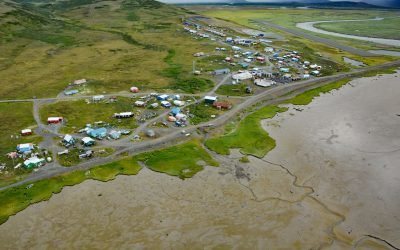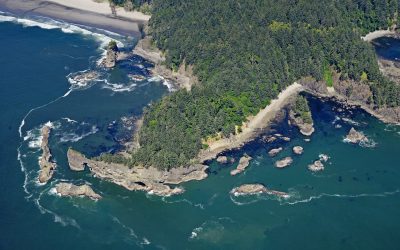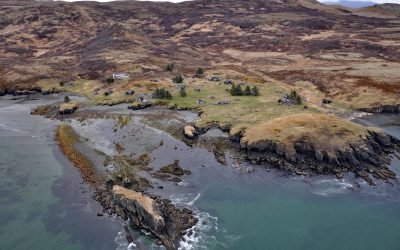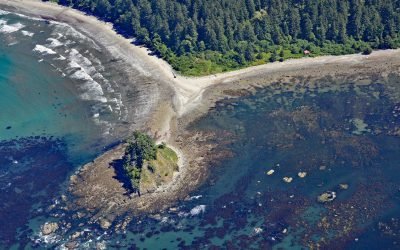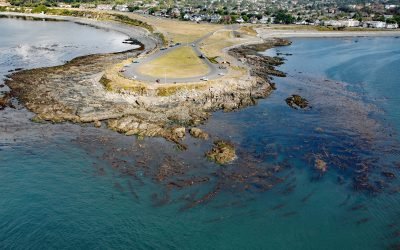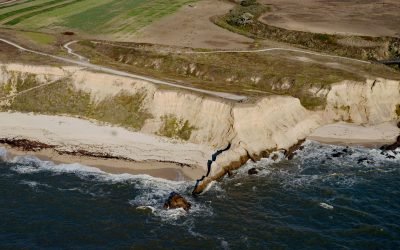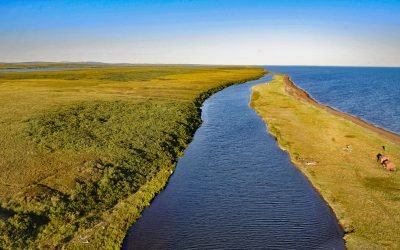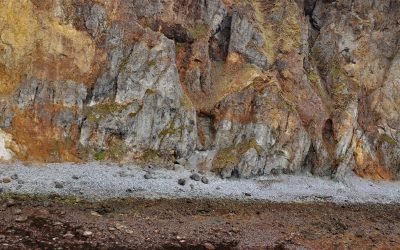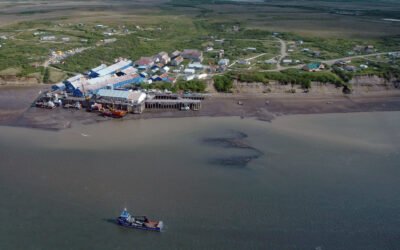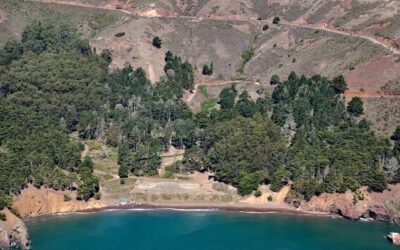Historical Sites
Recent Articles
More Articles
Goodnews Bay Village, Goodnews Bay
Goodnews Bay is a Central Yup’ik village at the mouth of the Goodnews River where it enters Goodnews Bay, about 117 miles (189 km) south of Bethel and 12 miles (19 km) northeast of Platinum, Alaska.
Teahwhit Head, La Push
Teahwhit Head is a rocky headland with a natural sea arch and the site of a historical shipwreck on the coast of Olympic National Park in the Olympic Coast National Marine Sanctuary, about 12 miles (19 km) southwest of Forks and 2.8 miles (4.5 km) south-southeast of La Push, Washington.
Delarof Harbor, Unga Island
Delarof Harbor is an embayment and the site of the historical village of Unga on the southeast coast of Unga Island, the largest of the Shumagin Islands, about 73 miles (118 km) southwest of Perryville and 9.5 miles (15 km) south of Sand Point, Alaska.
Cape Alava, Olympic National Park
Cape Alava is a point of land on the outer coast of the Olympic Peninsula in Olympic National Park, and bordering the Olympic Coast National Marine Sanctuary, about 22 miles (35 km) northwest of Forks and 15 miles (24 km) southwest of Neah Bay, Washington.
Clover Point, Ross Bay
Clover Point is a park of about 10 acres (4 ha) owned by the City of Victoria located between Ross Bay to the east and Finlayson Bay to the west at the southern tip of Vancouver Island, about 2.5 miles (4 km) southwest of Oak Bay and 1.6 miles (2.6 km) southeast of downtown Victoria, British Columbia.
Cowell Ranch Beach, Half Moon Bay
Cowell Ranch Beach is at the southern end of Half Moon Bay near the ghost town of Purissima, and the northern boundary of the historical Cowell Ranch, about 38 miles (61 km) northwest of Santa Cruz and 2.8 miles (4.5 km) south of the community of Half Moon Bay, California.
Tukrok River, Cape Krusenstern
Tukrok River flows generally east-southeast for 7 miles (11 km) from Krusenstern Lagoon to Kotzebue Sound in Cape Krusenstern National Monument, about 166 miles (268 km) northeast of Wales and 23 miles (37 km) northwest of Kotzebue, Alaska.
Vindicator Mine, Popof Island
Vindicator is a historical beach placer mine in the Alaska Peninsula Mining District situated on the western shore of Popof Island between Sand Point to the north and Red Cove to the south, about 260 miles (419 km) northeast of Dutch Harbor and 67 miles (108 km) southwest of Perryville, Alaska.
Diamond NN Cannery, South Naknek
Diamond NN is a historic cannery in South Naknek at the mouth of the Naknek River that flows into Kvichak Bay, an arm of Bristol Bay, about 56 miles (90 km) southeast of Dillingham and 13 miles (21 km) west of King Salmon, Alaska.
Kirby Cove, Marin Headlands
Kirby Cove is an embayment in the Marin Headlands on the northern shore of the Golden Gate in the Golden Gate National Recreation Area, and the site of a historic military installation, about 5.5 miles (9 km) northwest of downtown San Francisco and 2.3 miles (4 km) south of Sausalito, California.
About the background graphic
This ‘warming stripe’ graphic is a visual representation of the change in global temperature from 1850 (top) to 2019 (bottom). Each stripe represents the average global temperature for one year. The average temperature from 1971-2000 is set as the boundary between blue and red. The colour scale goes from -0.7°C to +0.7°C. The data are from the UK Met Office HadCRUT4.6 dataset.
Click here for more information about the #warmingstripes.

